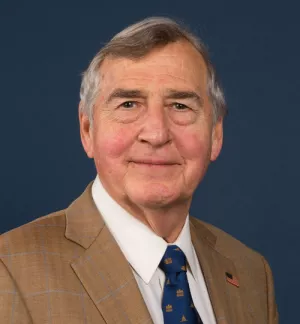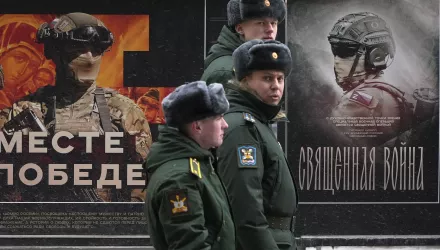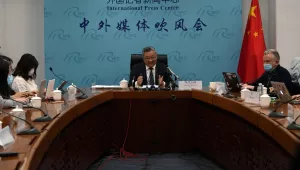Before 9/11, most Americans found the idea that international terrorists could mount an attack on their homeland and kill thousands of innocent citizens not merely unlikely but inconceivable.
After nearly six years without a second attack on U.S. soil, some skeptics suggest that 9/11 was a 100-year flood. The view that terrorists are preparing even more deadly assaults seems as far-fetched to them as the possibility of terrorists crashing passenger jets into the World Trade Center did before that fateful Tuesday morning in 2001.
And yet the danger of a nuclear attack by terrorists is not only very real but disturbingly likely.
To assess the threat of nuclear terrorism, it is necessary to answer five questions:
1. Who could be planning a nuclear terrorist attack?
Al-Qaida remains a formidable enemy with clear nuclear ambitions. Former CIA Director George J. Tenet wrote in his memoirs that al-Qaida's leadership has remained "singularly focused on acquiring WMD" - weapons of mass destruction - and willing to "pay whatever it would cost to get their hands on fissile material."
2. What nuclear weapons could terrorists use?
They could acquire an existing bomb from one of the nuclear weapons states or construct an elementary nuclear device from highly enriched uranium made by a state. Theft of a warhead or material would not be easy, but attempted thefts in Russia and elsewhere are not uncommon.
Once a terrorist group acquires about 100 pounds of highly enriched uranium, it could conceivably use publicly available documents and items commercially obtainable in any technologically advanced country to construct a bomb such as the one dropped on Hiroshima.
3. Where could terrorists acquire a nuclear bomb?
If a nuclear attack occurs, Russia would be the most likely source of the weapon or material. Russia has more nuclear weapons and materials than any other country, much of them vulnerable to theft. A close second would be North Korea. Pyongyang has boasted that it not only possesses nuclear weapons but might export them, saying, "It's up to you whether we ... transfer them." Finally, research reactors in 40 developing and transitional countries still hold the essential ingredient for nuclear bombs.
4. When could terrorists launch the first nuclear attack?
If terrorists bought or stole a nuclear weapon in good working condition, they could explode it today. If the weapon had a lock, detonation would be delayed for several days. If terrorists acquired 100 pounds of highly enriched uranium, they could have a working elementary nuclear bomb in less than a year.
5. How could terrorists deliver a nuclear weapon to its target?
The illicit economy for narcotics and illegal immigrants has built up a vast infrastructure that terrorists could exploit.
Based on current trends, a nuclear terrorist attack on the United States is more likely than not in the decade ahead. As horrific as that vision is, the most important but largely unrecognized truth is that this ultimate catastrophe is preventable.
There is a feasible, affordable checklist of actions that, if taken, would shrink the risk of nuclear terrorism to nearly zero. I have proposed a strategy for a no-loose-nukes agenda under a "Doctrine of Three Nos":
1. No unsecured nuclear weapons or weapons-usable material. All such material should be locked down as quickly as possible.
2. No new domestic capabilities to enrich uranium or reprocess plutonium. Highly enriched uranium and plutonium are bombs about to hatch. The crucial challenge to this principle today is Iran.
Preventing Iranian completion of its nuclear infrastructure will require a combination of incentives and credible threats to persuade Tehran to accept a grand bargain for denuclearization. President Bush must be prepared to give Tehran assurance of security if and when it gives up its nuclear weapons program.
3. No expansion of the nuclear club beyond its current 8.5 members, the half being North Korea.
Faced with the possibility of an American Hiroshima, many Americans are paralyzed by a combination of denial and fatalism. Either it hasn't happened, so maybe it's not going to happen, or if it is going to happen, there's nothing we can do to stop it. Both propositions are wrong. Citizens must press their elected officials to adopt a clear agenda for action and then hold them accountable for following through.
Graham Allison is director of the Belfer Center for Science and International Affairs at Harvard's Kennedy School of Government. He is a former assistant secretary of defense and author of "Nuclear Terrorism: The Ultimate Preventable Catastrophe." His e-mail is graham_allison@harvard.edu.
Allison, Graham. “Fast Action Needed to Avert Nuclear Terror Strike on U.S..” Baltimore Sun, July 2, 2007




